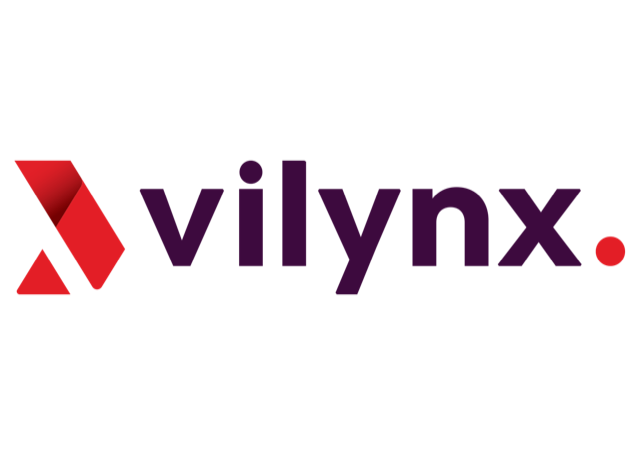Former CNN Exec Klein Brings News on Artificial Intelligence

The smarter way to stay on top of broadcasting and cable industry. Sign up below
You are now subscribed
Your newsletter sign-up was successful
Why This Matters: While TV companies tout navigation, Silicon Valley giants are using AI, personalization to draw viewers to OTT.
Leave it to a reporter to find a good navigation tool.
Former CBS News and CNN executive Jon Klein believes the TV business needs artificial intelligence to compete with the digital giants whose streaming and over-the-top video offering are accumulating viewers and revenues.
Klein is worth listening to. At CNN, he was an early adopter of social media as a newsgathering tool. His startup venture, The Feedroom, streamed NCAA March Madness games to personal computers. And his current venture, TAPP Media, provides subscription video-on-demand direct to consumers.
TAPP was generating tons of data, but it needed a way to understand and unlock the value of that information. Klein zeroed in on artificial intelligence as a solution, but quickly realized the AI giants — IBM’s Watson and Google AI — charged a lot of money and didn’t provide customized solutions for media companies.
“It was basically one-size-fits-all,” he said.
Then Klein found Vilynx, started by engineers in Spain, that specialized in media and was able to use artificial intelligence, machine learning to process and understand video.
The smarter way to stay on top of broadcasting and cable industry. Sign up below
Media Specialists
Impressed, Klein joined Vilynx as president, and will now oversee its expansion in the U.S., where it already works with NBC News and a few other large media companies. Joining him at Vilynx as VP of product is Phil Zepeda, until recently technical product manager of video and personalization at NBC News Digital.
“I discovered this group of geniuses who are are focused specifically on AI for media,” Klein said of Vilynx. “Media companies need people who can process a ton of video, drill down deeply into it, and then from that pile of data create products that help you make more money, that help you generate more customers and retain your customers.”
In the digital environment, legacy TV companies are like deer caught in headlights, according to Klein.
“What’s really clear is that without AI, over-the-top means over your head,” he said.
Media companies are creating over-the-top products to compete with Netflix and Amazon. “Netflix and Amazon have huge in-house artificial intelligence teams crunching massive amounts of data, analyzing it and the acting upon the data,” Klein said. “And the rest of the pack doesn’t have that at all. And so they’re frozen in place, they’re like a deer in the headlights. They know that AI is changing every other industry but they’re not sure how to harness it for theirs.”
The companies Vilynx currently works with are just starting to figure out what its artificial intelligence and machine-learning brain are capable of, Klein said.
NBC News used Vilynx to generate metadata tags for video clips. When a human intern tags video, there are usually about five fields they can fill in. Vilynx can “watch” the video and fill in 50 fields, cataloging who is in the video, what they’re saying, what they’re wearing, where they are and even the tone of their words. That gives the owner of the video 10 times as much data and means more accurate recommendation and search results.
That means more video views, which means a lift in the digital revenue legacy TV companies still find elusive.
The more-accurate search function also helps create new content. Producers can find video clips they need to produce stories. At the same time, Vilynx can access the clips on its own to create more personalized promos that align with what individual viewers are looking for. It can also test various promos to see which are most effective at attracting viewers.
At NBC News, employing Vilynx helped generate a 60% to 250% increase in video views, Klein said.
NBC News was looking to add recommendations and personalization to its sites, Zepeda said. It found a lot of companies that did recommendations.
“While most of the people would really focus their recommendations around text-based content, Vilynx was the only one at the time that actually even had the capability to truly understand video content,” Zepeda said.
NBC News started integrating Vilynx on its video pages, then its text pages, and saw strong results. Sold on the value of AI to media companies, Zepeda decided to join Vilynx and work with other media companies.
Bringing Value to Video
“These companies have massive, massive amounts of video coming in every day and it’s completely unstructured and raw,” he said. “This really is kind of the Holy Grail right now, how to get more value out of all this raw, unstructured video content that’s coming in, which is their most valuable asset.”
Looking ahead, Klein sees AI and Vilynx having a role in helping media companies build communities around content and generating bigger audiences for over-the-top streaming products through on-target recommendations and promotions. AI can also be used to target ads and branded digital content.
Klein said that so far, Vilynx has turned all of its trials into contracts with media companies.
“Everyone gets so excited by the possibilities,” he said. “There are so many smart people at these networks and the technology folks have been champing at the bit to get into AI.”
Jon has been business editor of Broadcasting+Cable since 2010. He focuses on revenue-generating activities, including advertising and distribution, as well as executive intrigue and merger and acquisition activity. Just about any story is fair game, if a dollar sign can make its way into the article. Before B+C, Jon covered the industry for TVWeek, Cable World, Electronic Media, Advertising Age and The New York Post. A native New Yorker, Jon is hiding in plain sight in the suburbs of Chicago.

